A one-day, two-part seminar looking at changing banking regulations and banking behaviour affecting NGOs addressing human rights issues.
Wednesday 6 July 09:30 - 17:00 in two sessions:
- Part 1: Morning Session: Taking stock of Co-operative Bank closures of human rights NGOs and developing a plan of action to hold the Bank to its ethical policies
- Part 2: Afternoon session: Looking at wider regulatory issues influencing the Bank’s decisions, including FATF, US regulations with extra-territorial reach, UK Treasury regulations etc.
Amnesty Human Rights Action Centre, 17-25 New Inn Yard London EC2A 3EA
For each session a panel of affected organisations/specialists will share their experiences and then discuss common themes and answer questions.
Chatham House rules will apply.
Programme
9.30 Registration and coffee
9.45 Welcome and introduction – Peter Frankental from Amnesty International UK and Rob Harrison from Save Our Bank (SOB)
Part 1: Morning Session
Chaired by Rob Harrison/Ryan Brightwell/Shaun Fensom of SOB
Taking stock of Co-operative Bank closures of human rights NGOs and developing a plan of action to hold the Bank to its ethical policies
10.00 – 11.00 The problem with the Co-operative Bank and its impacts
Panel:
- Tricia Rich Deputy Director (Interim), Palestine Solidarity Campaign
- Ravi Naik Solicitor, Head of Public Law, Irvine Thanvi Natas Solicitors
- Helen Yuill, Events Co-ordinator, Nicaragua Solidarity Campaign
11.00- 11.15 Break
11.15 to 12.00 Problems for NGOs at other banks and outside the UK
Panel including:
- Lia van Broekhoven, Executive Director, Human Security Collective (HSC)
12.15 - 1.00pm Potential solutions - from identifying best practice to petitions and campaigns
Panel Including:
- Sophie Sharp-Fryer: NUS Ethical Supply Chain Coordinator
- Tony O’Rourke, London Institute of Finance and Banking, Associate of Co-operatives UK.
1.00pm to 2.00pm Lunch
Part 2: Afternoon session
Looking at wider regulatory issues influencing the Bank’s decisions, including FATF, US regulations with extra-territorial reach, UK Treasury regulations etc.
Chair: James Savage, Fund for Global Human Rights
2.00- 3.00 Understanding how US and UK regulations contribute to NGO/CSO account closures
Panel:
- Tom Keatinge, Director, Centre for Financial Crime and Security Studies, Royal United Services Institute
- Ben Hayes, Consultant specialising in international and national security policies
3.00-3.15 Break
3.15 – 4.15 Understanding the impact of FATF on Banks’ de-risking NGO/CSO accounts
Panel:
- Katerina Hadzi-Miceva Evans, Executive Director, European Center for Not-for-Profit Law
- Lia van Broekhoven, Executive Director, Human Security Collective
4.15 - 5.00 Final Reflections and discussion of next steps
- What might a lobbying strategy to influence regulations look like?
- Would it be desirable to initiate a project, possibly in conjunction with a law firm and/or bank, to develop good practice guidelines for banks that will reflect the human rights impacts of account closures, that will be transparent, and ensure that NGOs/CSOs are treated fairly?
- A five-point communiqué?
Background material
Here is some advance reading material that might be of interest:
- Tom Keatinge’s paper ‘Uncharitable Behaviour’
- A study on ‘Drivers & Impacts of Derisking’ published by the Financial Conduct Authority
- Overheads presented at a recent seminar by the Barclays Bank derisking team on ‘Sanctions Challenges in the Global Development Sector'
Hosted by Save our Bank, in collaboration with the European Civil Society Coalition on the FATF and Amnesty International UK
Location




